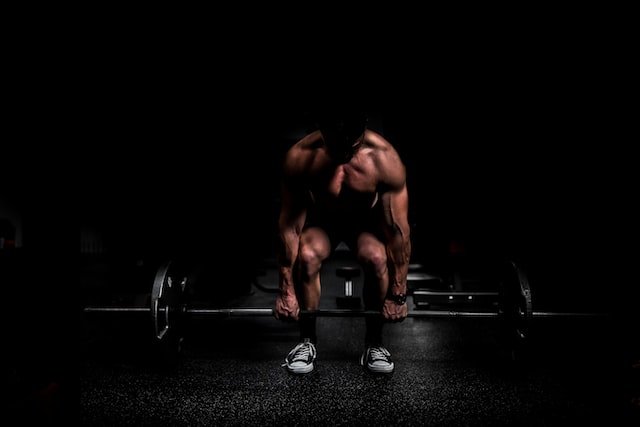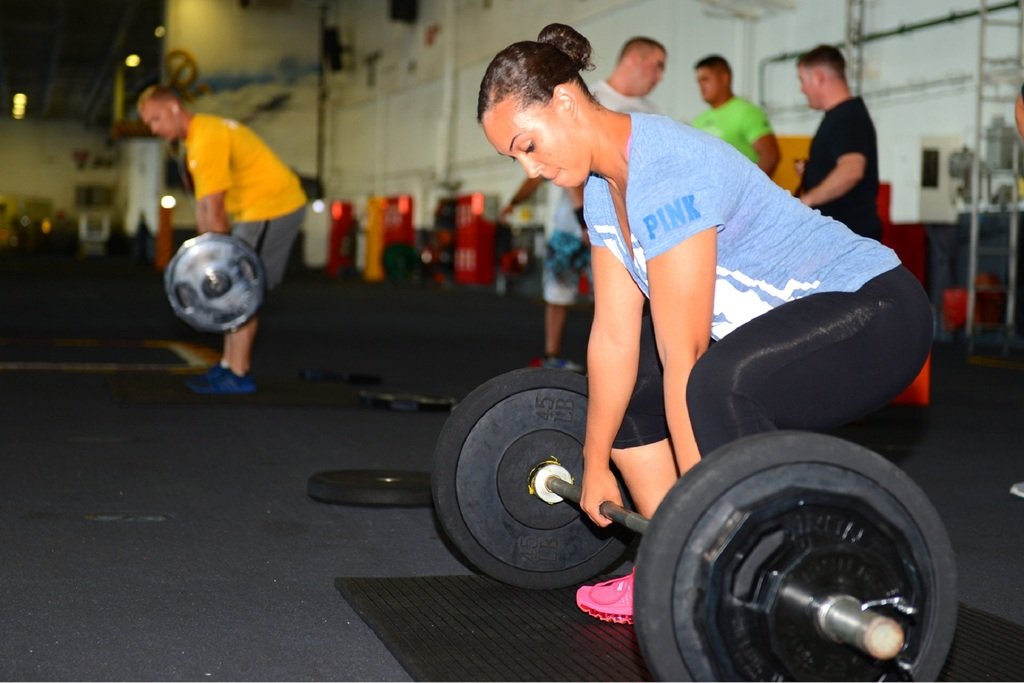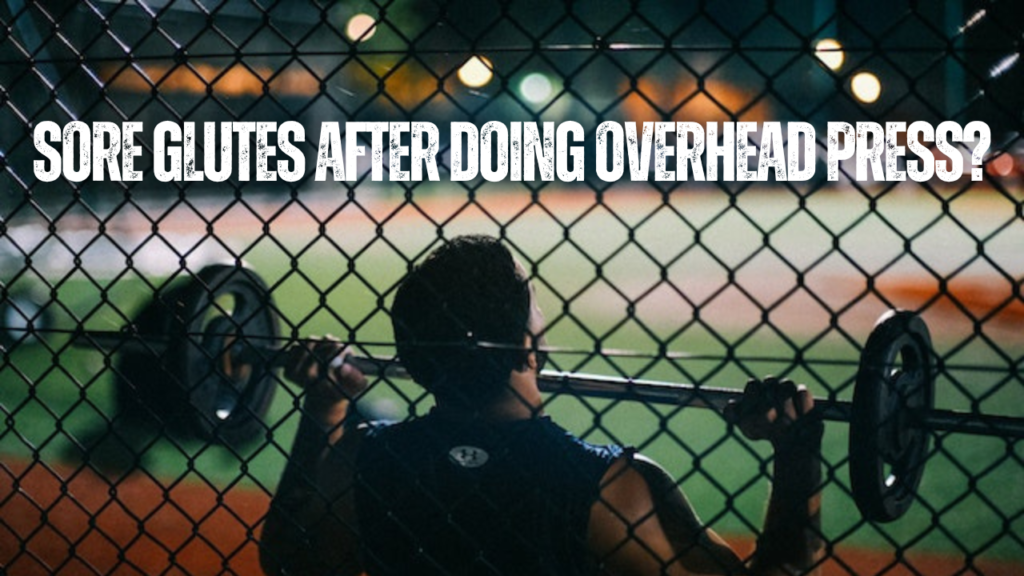
Are Your Shoulders Supposed To Be Sore After Deadlifts? Answers Here
Are you trying to get your fitness routine back on track but feeling discouraged because of sore shoulders after deadlifts?
It can be tricky to figure out the best way to exercise correctly, especially when it involves lifting heavy weights.
Fortunately, understanding when and why you experience shoulder pain will help you decide how to modify your exercises for maximum results.
In this blog post, we’ll explore why shoulder soreness occurs after deadlifts and provide tips that can help reduce discomfort while gaining strength and muscle mass more effectively.
Are your shoulders supposed to be sore after deadlifts?
For novice weightlifters, it can be difficult to determine whether sore shoulders after deadlifts are normal or a sign of an injury. Generally speaking, a certain degree of shoulder pain is common with this exercise and should not be alarming. However, if you experience sudden and intense shoulder pain that lasts for more than two days, it could be a sign that something is wrong and you should stop deadlifting. Common causes of shoulder soreness after deadlifts include poor form, using too much weight, or not taking the time to warm up properly. To avoid issues like these in the future, be sure to reduce the weight and focus on perfecting your form. When you lift heavy weights your body is naturally going to tense up and protect itself from injury. This will typically lead to an increase in shoulder soreness, even if everything else is done correctly. To reduce this tension, focus on breathing deeply throughout the exercise and keeping your shoulders relaxed. Another common cause of shoulder pain is when the bar is too far away from your shins. When you start to lift, make sure the bar is nearly touching your body and that it stays close throughout the motion. Additionally, check your grip before each lift. If your hands are too wide or narrow on the barbell, it can throw off your centre of gravity and lead to an uneven lift. Finally, it is important to recognize any preexisting imbalances or previous injuries that could be exasperated by deadlifting. Take the time to assess your body’s mobility and flexibility before beginning a deadlift session, as any limitations can increase fatigue or pain in the shoulders.
Now, let’s take a more in-depth look at why you might be experiencing soreness in your shoulders when doing deadlifts…
Are deadlifts new to you?
If so, it’s likely that you are not used to the muscles being taxed in this way and need time to adjust. Start light and gradually increase the weight as your form and technique improve.
If you are new to fitness and deadlifts, it is also important to work on shoulder strength before attempting this exercise. Without a proper amount of shoulder strength, your shoulders may be put through undue strain and pain as they are not accustomed to the heavy lifting that is being demanded.
Your body will take a little time to get used to the new stimulus that’s been placed on it, so don’t be too hard on yourself if you are feeling sore.
After a few weeks, your body should be better equipped to handle the weight, and your shoulders will start feeling stronger.
Hopefully, by then the soreness you have been feeling in your shoulders will have gone and you can continue deadlifting with confidence.
Form and technique
When deadlifting, form and technique are key for preventing injuries. Your feet should be slightly wider than shoulder-width apart and your back should be straight throughout the entire range of motion.
Then, as you pull the barbell upwards, make sure it is close to your body and keep your shoulders back for better support. Be sure to activate the muscles in your back and core to help stabilize the weight.
One thing you often see people doing is rounding their back or shoulders when deadlifting, which can put unnecessary strain on your back and shoulder muscles.
Try to maintain a neutral back position throughout the entire exercise, whilst also pulling your shoulders back to avoid this issue.
Make sure you are looking forward and not up to the sky. This will allow your neck, shoulders and back to stay in the correct position while deadlifting.
Proper form and technique can reduce strain on the shoulders and help you to lift the weight more safely.
Reduce the weight
Lots of inexperienced lifters often try to lift more weight than their body can handle. This can put a lot of stress on the shoulder muscles, leading to soreness and even injury.
Be sure to get your form down first and gradually increase the weight you’re lifting. Don’t rush and try to lift heavier weights immediately, as this will lead to poor form and can end up causing long-term problems.
If your shoulders are sore after deadlifts, reduce the weight and focus on getting your form correct first. Work up slowly and your body will soon adjust to the new weight.
Attempting to lift beyond your physical capabilities demonstrates a lack of respect for both yourself and what you are truly capable of, so make sure you are taking the correct steps to progress safely and efficiently.
To ensure you are able to safely and effectively progress, make sure you can comfortably perform 6-10 repetitions of the desired weight with impeccable form before attempting heavier weights.

Body protecting itself
When lifting, the body will naturally tense up in order to protect itself from potential harm or injury. This is known as ‘protective tension’ and is an involuntary reflex – it cannot be controlled.
The body does this in order to shield itself from the stress of force, and it is usually most prominent when lifting heavier weights.
As this tension increases, the muscles in your shoulders may become strained, leading to post-workout soreness.
However, this can be avoided by ensuring you have a good understanding of form and technique. Once your body has adjusted to the weight and you have a good handle on form, your protective tension should decrease and the soreness you are feeling will dissipate.
Try and see if you are able to film yourself when doing deadlifts to then watch and analyse your form, this will help you to spot any potential issues that may be causing soreness after deadlifts and will also show you if your shoulders are tensing up just before and during the movement.
Shoulders too loose before lift
The reason your shoulders are getting sore after deadlifts may be that they are too loose before you start the lift.
It is important to brace the muscles in your shoulders and back before you start a deadlift. This will help keep your form correct and will also protect your shoulders from any unnecessary strain.
If you aren’t prepared to brace your arms, shoulders, back and core before the movement, then the weight will be much harder to lift and your form will suffer. This can cause tears in the muscles of your shoulders, resulting in soreness after the deadlift, so be careful.
Make sure you have a good grip on the barbell before you start the deadlift and then brace your shoulders and back muscles. This should be done without moving the barbell, as you don’t want to injure yourself in the process.
Once you are in position, take a few deep breaths and then start the lift. This will help ensure your muscles remain engaged throughout the entire lift, which will help reduce shoulder soreness post-workout.
Related: Why do squats feel so awkward?
Shoulders taking over the movement
When you are deadlifting, it is important to make sure the muscles in your back and legs are doing most of the work.
If you find that your shoulders are taking over the movement and you are no longer using the correct muscles, it may be time to reduce the weight.
When your shoulders are doing too much work, they will be under more stress than normal and can become strained.
This leads to soreness after the deadlift, so it is important to make sure you are using the correct muscles during the lift.
This might also be something that you aren’t aware of, so make sure you are aware of your form and the muscles being used throughout the lift.
Your shoulders might also be taking over the movement if the barbell isn’t close enough to you when you begin the lift, which means it’s having to work harder to stabilise the load.
Bar too far away
If the bar is too far away from your shins, it will put more stress on your shoulders as you lift. This can cause them to become strained and can lead to soreness after the deadlift.
To ensure the bar is close to your shins, make sure you are setting up properly before you start the lift.
Stand with your feet hip-width apart, place the bar on top of your laces and make sure the bar is close to your shins. Then take a deep breath, brace your core and shoulders and begin the lift.
This will help ensure that your shoulders don’t have to work too hard during the lift and will reduce the chances of you experiencing soreness afterwards.
This might take a little bit of practice to get used to having the barbell so close to you when you lift, but once you get the hang of it, you’ll be able to lift much heavier weights without straining your shoulders.
Grip
If your grip is too wide, it will place more strain on your shoulders and can lead to soreness after the lift.
To ensure you have the correct grip, make sure your hands are directly under your shoulders when gripping the bar. This will help you keep the weight in your back and legs, rather than your shoulders.
It is also important to make sure you aren’t gripping the bar too tightly. This can cause unnecessary strain on your arms and shoulders, which can lead to soreness afterwards.
You can also change your grip position by using a mixed grip. This involves using one overhand grip and one underhand grip, which can help keep the bar stable as you lift it and will help reduce shoulder strain if you have been only using an overhand grip.

Lack of shoulder strength for exercise
If you lack shoulder strength for this exercise, then it can be more difficult to put the weight back down without straining your shoulders.
In this case, it is important to focus on strengthening your shoulders before attempting a heavier weight. Start with light weights and build up gradually as your shoulder muscles become stronger.
If your shoulders are still sore after the exercise, then it can be worth taking a break for a few days to allow your muscles to recover.
This would normally be the case with beginners who have just started deadlifting, as it can take some time for the body to get used to this type of exercise.
Not warming up
It is important to warm up properly before doing any weightlifting.
Not warming up can lead to increased strain on your shoulders and can cause soreness afterwards.
Make sure you spend at least five minutes warming up the muscles you will be using during the exercise, and make sure to include some shoulder exercises.
Warming-up exercises include arm circles, shoulder rolls and arm swings.
This will help reduce the risk of injury and can also improve your performance on the lift, which in turn should reduce the amount of strain on your shoulders.
A majority of physical pains and injuries that people suffer from are due to failing to properly warm up beforehand, so take the time to do so.
Shoulder mobility
If your shoulder mobility is not up to scratch, it can lead to sore shoulders after deadlifts.
A lack of mobility can make it difficult to keep the weight in your legs, which can then cause strain on your shoulders and lead to soreness.
To improve your shoulder mobility, do exercises like arm swings and shoulder rolls. You can also use a foam roller to help loosen up your shoulders before lifting.
Dead hangs can also be a useful exercise for improving shoulder mobility and flexibility.
The shoulder joint is incredibly complex, and some people will struggle to get the mobility they need to perform the lifts correctly.
If this is the case, it can be worth consulting a professional to help improve your shoulder mobility, as it can make a huge difference to the way you perform your lifts.
Related: Why Am I So Tired After Deadlifts?
Previous injury
If you have recently suffered an injury, then this could be the reason your shoulders are feeling sore. This ties into what we just mentioned above, as an injury will often lead to reduced mobility.
The injury might feel fine and ok to use generally, but if you are then trying to lift heavy weights, then it can put extra strain on the joint and cause soreness afterwards.
The injury you had might not also be recent, but deadlifts may have just exacerbated a previous injury and made it more noticeable.
If this is the case, then make sure you take extra time to warm up and stretch your shoulders, and if the pain persists then it might be wise to stop deadlifting until you have seen a specialist.
Overuse
If you are deadlifting too often, or you use your shoulders more for work or other activities, then this can lead to soreness in your shoulders.
It is important to take regular rest days to allow your body to recover and prevent overuse injuries.
You should generally be deadlifting no more than three times a week, with at least 48 hours between each session.
If you find yourself consistently feeling sore after deadlifts, or if the pain is getting worse, then it might be time to take a rest and reassess your training plan.
If you use your shoulders daily for work or other activities, then this can also increase the likelihood of them feeling sore after deadlifts.
It is important to take regular breaks throughout the day to allow your shoulders to rest and recover or look at ways to reduce the strain on them.
Stress on ligaments and tendons
Deadlifts are a compound movement that uses multiple muscles and joints in the body. One of the main causes of shoulder soreness after deadlifts is the strain on the ligaments and tendons, which are not meant to take as much weight as muscles.
The shoulder has many ligaments and tendons, which can be easily stretched or strained if the weight you are lifting is too heavy. Over time, this will lead to pain and soreness if left untreated.
If you are using a weight that is too heavy for your body, then this can cause the ligaments and tendons in your shoulders to become overstretched.
This can lead to pain, inflammation and tenderness. It is important to make sure you are using an appropriate weight for your body, as this will help to minimise the risk of injury.
When doing deadlifts, it’s essential to make small increases in weight instead of taking a large jump. This will help you become accustomed to the load and be more successful when lifting.
Imbalances
Lastly, it is important to make sure that you are not doing too much of one exercise and neglecting other areas.
The deadlift is a great exercise, but it works mainly the back and hamstring muscles. This can cause an imbalance in your body if you do not also work other muscles such as the chest, shoulders and arms.
If your body is unbalanced then it can cause pain or soreness in your shoulders, as these muscles are not used to taking the load.
It is important to make sure you do a range of exercises that target different muscle groups, as this will help to prevent any imbalances and ensure that your body is functioning correctly.
Having a well-rounded fitness program will ensure that your muscles are well-conditioned, which will help to reduce the risk of any shoulder pain and soreness after deadlifts.
Related: Why do squats feel like cardio?
Final thoughts…
Are your shoulders supposed to be sore after deadlifts? Generally speaking, a certain degree of shoulder discomfort is common with this exercise and should not be alarming.
However, if you experience sudden and intense shoulder pain that lasts for more than two days, it could be a sign that something is wrong and you should stop deadlifting.
Common causes of shoulder soreness after deadlifts include poor form, using too much weight, taking insufficient rest days, or not taking the time to warm up properly.
It is important to make sure you are using an appropriate weight for your body, as this will help to minimise the risk of injury.
You should also make sure you are doing a range of exercises that target different muscle groups, as this will help to prevent any imbalances and ensure that your body is functioning correctly.
Have your shoulders felt sore after deadlifts? Let me know in the comment section below.


